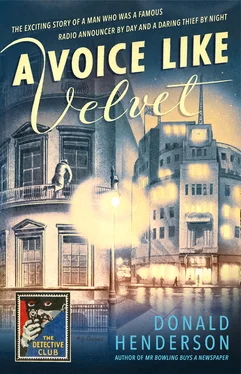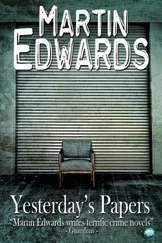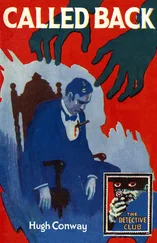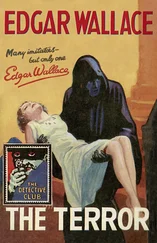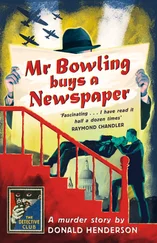He spent all that morning staring glassily at the prospectus, and accusing himself of being dreadfully ungrateful and feeble, and not like other boys. Yet he felt queerly pleased to be ‘different’.
He felt he already knew the school inside out, and it was as chill inside as it was out.
It was also vast. There were five hundred boys.
There were four Houses, called North, South, East and West. He was to go to West House, under Mr and Mrs Deem. The pater had evidently already seen them, and he thought Mr Deem ‘a fine man’, and Mrs Deem ‘extremely sensible’.
There was an OTC, and several vigorous sergeant-majors; there were various quite incomprehensible things printed here and there in Latin, and not only in Latin, but in Roman figures as well; there was a Chapel covered in ivy, lists of places which were out of bounds (penalty—a flogging), lists of Distinguished Old Boys, which appeared to be very broadminded, including abbots, airmen and actors. Nearly all seemed to have been shot in some war or other.
There was a picture of ‘a lecture room’, and ‘the new laboratory’, and ‘a classroom’, and ‘the cloisters leading to Big School (fifteenth century)’.
He felt unsettled and uneasy.
But he liked things to be gentle and settled, he liked reading by the fire better than charging about with heavyweights in the bitter wind. He had never been flogged, and dreaded even meeting Mr Quantam, let alone being flogged by him. He was prepared to loathe everyone. It was a sentence, and he disapproved of prisons.
Also, the town was associated with his sentence of incarceration. He soon hated the trams and the wide congested Broad Street, and saw nothing picturesque about the Old Prison and the Old Castle, which represented to him nothing but a minimum distance for alternative Sunday walks. There was a smelly tannery on the route, and there was the empty shop where somebody had had his head battered in, though nobody had been hanged for it yet. The police knew who it was, but there wasn’t enough proof. This was to be most attractive for a few terms, but soon it was a bore. It wasn’t even fun any more, then, seeing strange men pass the shop, and thinking: ‘Perhaps you’re the murderer himself—walking about free!’ The town was noted for museums and soap. Nearly every big building was either a museum, or else it was a soap factory. There were hundreds of lime trees and horse chestnut trees, and tram lines wandered everywhere, making cycling slightly dangerous. There were rows of big, dull houses, red and grey, with strong drain pipes, and they were one and all studded with brass plates: doctors, dentists, surgeons and psychologists, for there was a well-known hospital just out of the town of vast dimensions.
There was a college of dubious repute, several squalid schools one never played or mentioned, and a theatre which was now given over to the amateurs, when it was not a cinema.
The trams clanged continually through everything, and you could hear them in the distance at night. They made you feel that you were indeed in a cell. The world was very far away, and your sentence was years yet. You were only fourteen or fifteen, and you wouldn’t leave until you were at least seventeen.
These were the years which were supposed to decide what a man was going to be and do in the world.
Queerly, hardly anybody asked Ernest what he was going to be or do.
There was too much routine, too much going on, for masters to ask that.
Each new arrival was the same.
He would reach the school gates and there, up the long lime tree-bordered drive, with the cricket pavilion away over there on the left of School Field, was the school itself spread out in its familiar splendour. You couldn’t see North House or East House, for they were right behind the quadrangle, near the laboratories and the sanatorium. But you could see South House away there on the left, and straight up the drive past ‘porter’s lodge’ was West House. Taxis were going up the drive and down it, and up and down the other drive past the chapel, empty or laden with trunks.
Rooks sat about dismally on the tower of Big School.
Porter’s white cat strolled out of the lodge, licking its chops. Porter and his fat old wife came out as if to sniff the smell of the new term. They were called Mr and Mrs Gray, but when you saw Mrs Gray, which was rarely, you said for some reason or other, ‘Hallo, Mrs Porter,’ and when you saw porter, you said, ‘Hallo, Gray.’ He was very popular and nice, and always on your side, even when he came into the classroom with a note from the Head to be read out. While the master was reading it threateningly out, old Gray always winked slyly, and at a certain point in the recitation rubbed what he liked to call ‘yer bum’, with circular motions of his free hand. ‘Boys are reminded of two things: The new school fields in Elliot Road are out of bounds except for prearranged matches; two boys were severely flogged this morning for removing test tubes from the laboratory without permission.’ The Grays’ little cottage was practically hidden by its own drainage system, which was a sea of pipes, all of which dripped and gurgled behind patchy clusters of dirty-looking ivy. The atmosphere within looked pitch black, and smelt vaguely of tea.
He would say: ‘Hallo, Gray—hallo, Mrs Porter,’ and old Gray would twinkle and call out (he knew absolutely everyone’s name): ‘Ha’r, young Bisham, well, how are we, then, glad to be back? Watch out for yer bum this term, my lad; be sure to do that, sir! I’ve had to get in two dozen new birch rods, ’cos of the way you all went on last term!’
‘Oh, get on, Gray,’ one always called out. ‘I know you’re ragging!’
Mrs Porter would be bending over three square inches of flower border, and revealing parts the size of an elephant.
Ernest saw his younger self pulling his cap off and start throwing it up and catching it. Once, he had had a fight in the drive, well, a wrestling match, and his enemy had thrown his cap into the bushes, just there by the Head’s garden. In getting his cap, the Head’s face had appeared over the wall. His bulging eyes, thick lips and shredded ears. The moment had been extremely painful for all concerned, for not only were the bushes out of bounds, but it was also Sunday, ‘the day of rest, have you forgotten, may I ask?’ the Head had coldly wondered.
Both boys had been mesmerized in the drive, usually the scene of happier moments, when one rushed up and down at the school rugger match, shouting hoarsely: ‘Play up, school! Schoo … ool !’
Old Rags had said through his nose (he always rasped things through his nose):
‘Come and see me tomorrow morning at ten o’clock.’
It had been unusual. Boys who were boarders were rarely dealt with by the Head, they were usually handed over to their Housemaster. Anything was better than having Rags lamming into you. Which would it be, a flogging or a caning? Queerly, it was recognized that when the Head sent round a notice that a boy had been ‘caned’, it was far worse than being ‘flogged’. The former meant six of the very best, and the latter meant only about three. It was freakish.
Appearing, however, at ten, after a light breakfast, it had appeared necessary to remind Old Rags what they were outside his ghastly study for. He really seemed to have forgotten.
‘Er, in connection with an … incident in the bushes, sir, yesterday,’ young Cobalt had got out. His eyes were like the eyes of a snared rabbit. Ernest had a new and odd sensation of being thrilled.
He had a silk handkerchief down his pants; they said that took off the sting, and wasn’t noticed if he felt you. There had been an interesting pause. Lame Miss Nutley, wearing a green jumper and pince-nez, had come out of the study with a handful of papers. She was the Head’s secretary. She went dot-and-carry-one and vanished, her right hip rather crooked. Mr Friday, short and white whiskered and Bursar, and wearing gold glasses flat on his forehead, and wearing a parson’s collar, came out with his hands, as ever, tucked behind his gown, and walking with his little knees going outwards. The Head’s mortar-board towered above his bull-like features, and he licked at his chops like he always did every morning in chapel, as if he was exploring avidly round his tremendous teeth, in search of juicy bacon rind. There was a glimpse inside the Head’s study—which you could have and welcome. There was the famous cupboard.
Читать дальше
